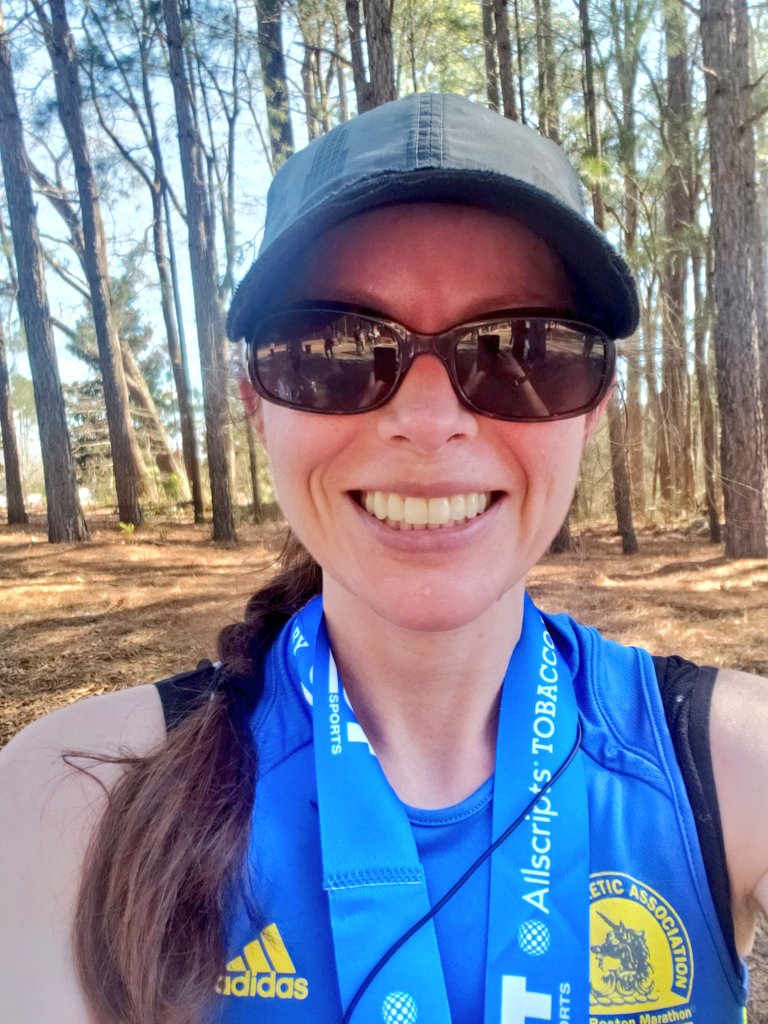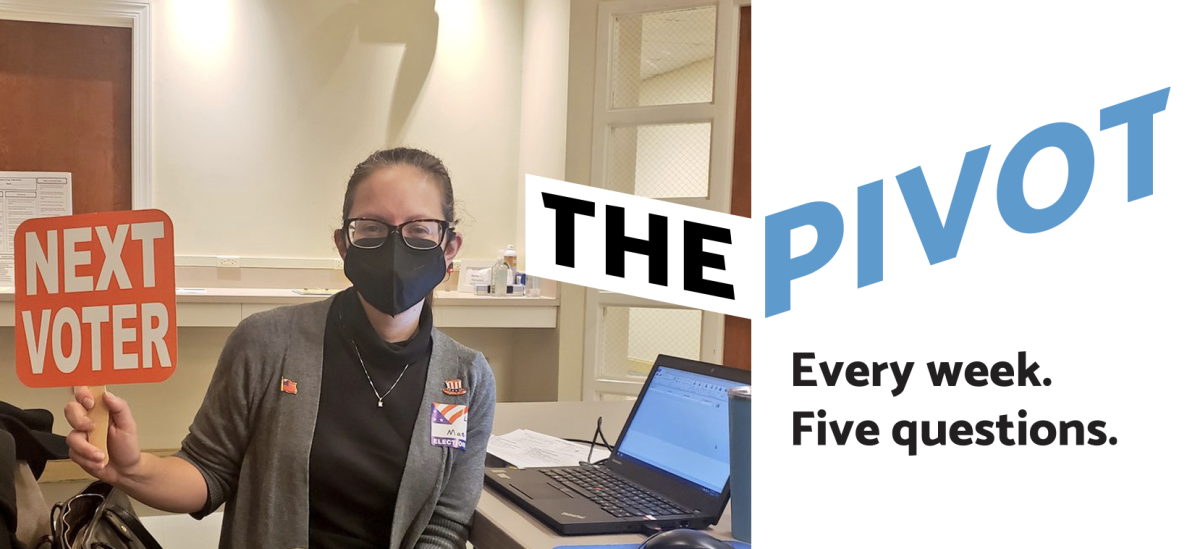The Pivot with Dr. Lindsey Haynes-Maslow
Dr. Lindsey Haynes-Maslow is a triple Gillings alum with a passion for election integrity.

What’s your role in public health?
I’m an associate professor in the Gillings School’s Department of Health Policy and Management. My biggest focus is prevention policy, so I look at federal and state policies that influence healthy behavior. For example, examining food access in a rural community, I might ask: Do individuals have the ability to find food that’s affordable, convenient, healthy and culturally appropriate? How can we improve their access?
During the pandemic, I started volunteering to staff polling sites for elections. I see this as public health practice in a roundabout way. So far, I’ve worked two federal elections and a round of primaries.

Can you describe your focus area in one sentence?
I use policy as a lever to break down systemic injustices in disinvested communities.
This is where voting really comes into play. If communities don’t have a voice to advocate for what they need — even if it’s something as basic as more streetlamps on their sidewalks — their needs rarely get met.

What brought you to public health?

Dr. Haynes-Maslow sports a race medal.
When I was an undergraduate student — before the Affordable Care Act — I started working at UNC Hospitals in pediatric cardiology. I was an administrative assistant, checking in patients and asking for co-pays. I saw the fear in parents’ eyes when they heard the cost. Even a $10 co-pay led to frantic mental math sometimes, because they were silently calculating how much food they’d have to give up or which bill they wouldn’t pay in full so their child with a heart condition could be seen by a doctor.
Those experiences made me want to work outside the hospital system; my ultimate goal would be to prevent people from entering it in the first place, if possible. With a focus on prevention, I joined the Bachelor of Science in Public Health program through Gillings’ health policy and management department and went on to complete an internship with the North Carolina Institute of Medicine, the North Carolina Medical Journal and the N.C. Division of Public Health.
All that exposure left me with the belief that policy is the best way to set up an even playing field.
Before COVID-19, I often referred to policy work as being only for people who are OK playing the long game. It could take decades of research, effort and education before seeing a policy shift. That changed during the pandemic.
Now, there seems to be a broader recognition of public health problems and greater demand from the public for research to underpin their lived experiences. If we can have findings ready to go in the form of fact sheets and infographics, sometimes the stars align. We get a chance to present to policymakers and sprint to the finish line of rapid positive change.

Can you describe a time when you have pivoted in your public health career?
While doing research during the pandemic, I was worried about the growing level of mistrust in this country. Going back to the roots of policy, such as voting, was an area that I wanted to branch out into. Working at the polls, I’ve been amazed at the number of self-identified women who serve as election officials. It doesn’t match the representation on the ballot. These women have such a passion for making things run smoothly for voters. A day can often run from 6 a.m. to 8:30 p.m., and we are all kept going by the shared belief that everyone has a right to vote and it’s our civic duty to help people do so.
I’m normally the youngest election official in the room — even before the vaccine came out! — and I am deeply touched by senior citizens’ commitment to protecting the vote. I’m also fascinated by the thoughtfulness of polling site logistics. In Orange County, every site has an intentional mix of officials with different political affiliations in an effort to avoid the optics of potential biases. There are many checks and balances in place — including numbered authorization-to-vote forms, hourly ballot counting and station rotation — so no one is solely responsible for any one part of the process.
I’d encourage anyone who’s interested to email their county’s board of elections and put their name on the volunteer list. I thought I was an educated voter before I attended the election training, but I had no idea about the level of detail involved. If this were taught in schools, I think it would alleviate concerns people may have around voter integrity and secure elections.

Who are you when you’re at home?

Goats play on Dr. Haynes-Maslow’s property.
I live on a few acres in Chapel Hill with my spouse. I spend time taking care of our goats and chickens as well as doing our landscaping and gardening. This keeps me busy on the weekends, but it’s still a break because I get to use my brain in a different way. I set my own pace and my work has tangible results on a much shorter timeline than some of my policy projects.
I’m also a runner! Last spring, I ran my personal best time in the Tobacco Road Marathon; this past fall, I came in second in my age group in Durham’s RDC half-marathon. Long-distance running teaches me strategies for when to push and when to step back so I can make progress while keeping a sustainable pace in service of my end goal.
Read more interviews in The Pivot series.
Published: 02/23/2023

